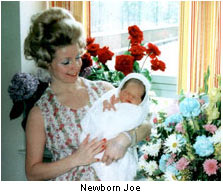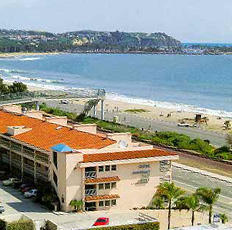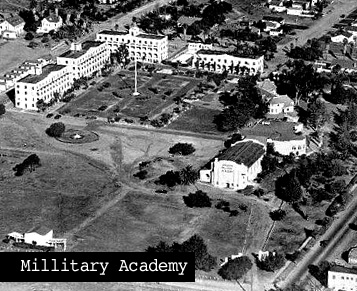
If life is a ride, which it surely is, then mine has got to be the balls-out wildest roller coaster in the park. I don’t mind: I know any life is going to have its ups and downs. Only an idiot would buy a ticket to a roller coaster that didn’t have turns, climbs, loops and dives, and anyone who really wants his money’s worth is going to look for the highest, fastest ride he can find. For me, the same is true of life. And while I’ve never spent much time thinking about the past, there’s been so much written about me that is misleading, untrue or simply a lie that I thought it might be fun to take a look back and finally put this wild story down on paper (or pixels) as it actually happened.
I suppose I owe my life to the art of the pickup. If a certain young man hadn’t approached a certain young woman on a beach many years ago, I wouldn’t be telling this story at all. The young man was Raymond Francis, my father, and on a Long Island beach one summer, he approached a pretty blonde Austrian girl named Maria to ask, “Would you like to go out?” Forty years later, they are still married. My lesson from this story: If you see a pretty girl on the beach and want to talk to her, don’t hesitate! You never know where it’s going to lead. Over the years, I’ve approached thousands of pretty girls on beaches all over the world, and what it’s led me to is a lifetime of great memories and, unbelievably, a multimillion-dollar company.
I was born on April Fools’ Day in 1973 in Atlanta, Georgia. My parents had moved there from New York after my father left his career in advertising to run a business called Daddy Crisp Potato Chips. Dad was a tireless hard worker with a constant, even obsessive drive to succeed. As a result, he wasn’t around much during my childhood. By contrast, Mom was always home. She was loving, even doting, but she wasn’t much of a disciplinarian. I was generally left to my own devices as a child, and as a restless little boy, I took full advantage of it. I was constantly looking for diversions. When I was very small, I thought one of my sister’s Barbie dolls was hot. I stole her and carried her around with me for weeks, calling her my girlfriend. But even as a young child, I suspected that she wasn’t anatomically correct, and I eventually had to end the relationship.
As early as first grade in Atlanta, I felt unchallenged and bored in school, until I met a little blonde girl who offered to play “Show Me Yours, and I’ll Show You Mine.” A teacher was shocked to find us in the middle of this innocent game. I was reprimanded and sent outside to think about what an awful little boy I was. I didn’t get it: What did I do wrong? The blonde girl was a willing, even eager participant. We didn’t touch each other and nobody got hurt. But the principal vigorously tried to convince me that being curious about girls’ bodies wasn’t just bad; it was a sin against all God’s creation. For me, there was a disconnect here. I didn’t get it. I didn’t invent girls’ bodies, God did, right? I always wonder what happened to that little blonde girl.
My first true crush came not long after. Miss Davis was a teacher’s assistant. I remember her as a tall, slender woman with great breasts, the face of an angel and the kind of eyes you can lose yourself in. What the hell am I talking about. I was six. The point is, I was in love. For some reason, I decided that if I placed an upturned thumbtack on the seat of her chair, it would impress her favorably. I watched excitedly as Miss Davis took her seat. She screamed, jumped to her feet and scanned the room, demanding to know who the culprit was. I thrust my hand in the air. “Me! Me!” I grinned. I don’t know what I was expecting for my candor. A kiss? A ride home with a stop for ice cream? What I actually got was a few days of suspension and the principal’s smirking remark to my mother that “If all children were like Joe, then people wouldn’t have children.”
When I was seven, my father announced that the family was moving across the country. He unfolded a map on the table, gestured grandly and said, “This is going to be our new home!” It was one of those old tourist maps of Southern California, decorated with cartoon figures representing different regions of the city. A surfer smiled happily from a wave on Santa Monica Beach. A movie director barked orders through a megaphone in Hollywood. A beautiful starlet sunned herself poolside in Beverly Hills. And there in Orange County, Mickey Mouse waved invitingly from the main street of Disneyland. I stared at the map, giddy with excitement. “I’m moving to cartoon land!” I thought. “This has got to be the most wonderful place ever. I’m gonna be the happiest boy in the world!”
 When we arrived in California, the reality turned out to be a tad different. The coastal community of Newport Beach was certainly beautiful; the air was warm and scented by the Pacific Ocean. But instead of surfers and starlets, little Joe Francis got nuns. Mom and Dad decided I would enjoy the structure of Catholic School, and I was delivered into the hands of the sisters of Our Lady Queen of Angels. It wasn’t a good fit. From the start I questioned everything the Catholic Church told me. “Why? How do you know? Prove it!” It drove the nuns crazy. Once again, I found the school day filled with mindless rote instruction that was neither challenging nor interesting to me. I constantly looked for other ways to amuse myself. As a result I got in trouble practically every day and eventually got tossed out of Catholic school altogether, for an incident I’ll have to tell in detail some other time. Suffice to say the nuns were horrified, pushed me out the door and told me to never come back.
When we arrived in California, the reality turned out to be a tad different. The coastal community of Newport Beach was certainly beautiful; the air was warm and scented by the Pacific Ocean. But instead of surfers and starlets, little Joe Francis got nuns. Mom and Dad decided I would enjoy the structure of Catholic School, and I was delivered into the hands of the sisters of Our Lady Queen of Angels. It wasn’t a good fit. From the start I questioned everything the Catholic Church told me. “Why? How do you know? Prove it!” It drove the nuns crazy. Once again, I found the school day filled with mindless rote instruction that was neither challenging nor interesting to me. I constantly looked for other ways to amuse myself. As a result I got in trouble practically every day and eventually got tossed out of Catholic school altogether, for an incident I’ll have to tell in detail some other time. Suffice to say the nuns were horrified, pushed me out the door and told me to never come back.
A series of such incidents finally convinced my parents that I wasn’t getting the proper guidance at home. They hatched the brilliant idea of shuffling me off to a boarding school to be raised by trained professionals. When I balked at the idea, they showed me a brochure of Rumsey Hall in New England and said, “Let’s just go look at it. You can decide later.” We flew to Connecticut and took a quick tour of the school. Before the tour was over I made my decision, and that decision was “Hell no.” I turned to head for the car when I noticed my parents pulling something from the trunk that I hadn’t seen before. It was a child-sized suitcase. Dad handed me the bag, tousled my hair and said, “Goodbye, son! And good luck!” As they headed for the car, I laughed, waiting for them to turn back and admit that it was just a joke. When they started the car and drove away, I was impressed with how far they were willing to take their little jest, until I heard the sound of their rental car fade into the distance and disappear altogether. The student director, a gray-faced codger who smelled like mothballs, put a fat hand on my back and pushed me into the building and down the hall to my room, where I sat down and cried for three days.
Rumsey Hall is a leafy campus of white clapboard buildings that must look adorably quaint to parents needing a place to store their children for a year, but for me it was a cold, damp, and irredeemably dull gulag. After all, I had never agreed to this! Connecticut? What about that map with the cartoon characters and the surfer and the starlet? What about California? That’s what I signed up for!
The only time I took interest in anything at Rumsey Hall was when I discovered that you could sneak through a certain forest and up a hill to reach the girls’ side of school. Every day I would escape from class or from the playground and steal through the woods to talk to the girls. Not because I was looking for action as a 10-year-old, but because sneaking to the girls’ school was forbidden, and that alone made it irresistible.
During the school year I was allowed occasional trips back to California. At the end of these visits, my parents would hand me cab fare for the 50-mile ride to LAX, where I’d board a plane, connect through Chicago, fly to New York and wait for a cab to take me to school – all of this at age ten. Alone. For some reason, this didn’t seem unreasonable to me. What did seem unreasonable was going to a boys’ school in the middle of nowhere. I did everything I could to coax the authorities into kicking me out of Rumsey. Even as I write this, I shake my head and laugh out loud at some of the crap I pulled. It took me almost the entire year, but I finally racked up enough penalties to be shown the gate for good, and I happily flew home to California.
 Back in Newport Beach, I had hardly unpacked my bag when my parents announced that I needed even more discipline. They escorted me to a boarding school near San Diego, somehow forgetting to mention until the moment we pulled onto campus that it was a military academy. The first thought that came to me upon climbing out of the car and getting a good look at this faux army compound was, “You’ve got to be kidding me.” Once again, Mom and Dad jumped into the car and sped away, leaving me alone at the school’s doorstep before I could launch a screaming protest.
Back in Newport Beach, I had hardly unpacked my bag when my parents announced that I needed even more discipline. They escorted me to a boarding school near San Diego, somehow forgetting to mention until the moment we pulled onto campus that it was a military academy. The first thought that came to me upon climbing out of the car and getting a good look at this faux army compound was, “You’ve got to be kidding me.” Once again, Mom and Dad jumped into the car and sped away, leaving me alone at the school’s doorstep before I could launch a screaming protest.
There is a certain kind of kid who actually enjoys military school; I hope I never meet that kid. For me, the academy was a preposterous and intolerable collection of arbitrary rules and silly, quasi-military posturing. I couldn’t take it seriously for a second. When we were rudely awakened at 4 a.m. and ordered out of our bunks, I turned over and said, “Forget it.” When a dorm sergeant took a brass belt buckle I’d just polished, spit on it, handed it back to me and said, “Do it again,” I tossed the buckle back to him and said, “I already polished it. You want it polished again, do it yourself.” I was grabbed by the neck and marched to the school “commandant” for a disciplinary meeting. The commandant ordered me to stand at attention. I didn’t hear him; I was staring at the ribbons on his chest. “Something wrong, boy?” He asked. I shrugged. “I’m just wondering what all those little ribbons are for. You’ve never been in the actual military, so what are those? Pretend ribbons?”
The commandant stared at me for a long beat. I smiled back. He turned in his chair and picked up the phone. He dialed my parents. Without taking his eyes off me, he told them that their son had just set a new school record. “No one had ever been kicked out of this academy in just five days,” he said, scowling in my direction. My response was to slip my hands into my pockets, slouch even further, and give him back the biggest shit-eating grin I could muster.
Back home, I had three sisters (Babette, two years older; Caroline, a year and a half younger; and Christina, 10 years younger), who could get away with so much shit that it astonished me. “Joe did it!” was their boiler-plate alibi, and my parents fell for it every time. To spare myself the useless aggravation of having my denials fall on deaf ears, I would just cop to everything. Maybe it’s because I respected the genius with which my sisters could make my parents believe anything. All I could do was shrug haplessly. “Yeah. I did it. So what?”
Off to reform school, that’s what. This time, it was a harsh and desolate ranch-based facility surrounded by ancient forests in Northern California that was called, I think, Pine Valley. The school director took delight in constantly reminding us, “This isn’t a prison. There are no walls.” He’d sweep a hand generously toward the dark tree line. “You can walk out of here anytime you want. But it’s only fair to warn you that you won’t get far in those mountains before you’re snatched up by a lonely logger or deranged hippie.” “Snatched up for what?” I asked the older boys. “Anal rape,” some of them hissed back, drawing the words out with demented relish. I didn’t know what it meant at the time, but I knew I wanted no part of it.
I have just three memories of Pine Valley or whatever that goddamn place was called, but they’ll haunt me forever. First, one of the teachers decided it would be a good idea to have us kids watch a pair of horses mate. We stood staring, the smallest of us desperately confused about what the hell we were supposed to make of it. The teacher grabbed the stallion’s monstrous penis and inserted it into the mare. “That’s the way it’s done, fellas,” the teacher said wistfully. On another rainy afternoon, we were treated to the spectacle of a horse being castrated with a pair of pliers. Finally, one morning a farmer woke us from a comfortable sleep and marched two other boys and me to a pasture containing a flock of sheep. He pointed to a one animal and asked, “What do you think of that fella there?” I yawned and said, “Looks like any other sheep.” That’s when I noticed the farmer had a rifle with him. He raised the gun and — BLAM! — shot the sheep through the head. He ordered us carry the carcass back to the barn. What lesson we were meant to draw from this spectacle I still can’t tell you. The lesson I actually did learn is that people who have authority over you are not to be trusted.
I was the youngest boy at the reformatory, and probably the loneliest. I kept myself busy cleaning chicken coops and stacking firewood until I was too tired to do anything but fall into bed. I sure as hell wasn’t going to venture anywhere near that forest full of anal rapists, so I kept my nose clean. By the end of the year, my parents decided I was properly reformed, so I was allowed to return home and enter public school.
HIGH SCHOOL
 Junior High school was a blur. As soon as I was old enough, I got a work permit from the school and found my first job, serving ice cream and sweeping floors for $3.35 an hour at Gelato Classico. I can’t tell you why, but I have always loved work. I would always rather be working than not. I spent all day at school just staring at the clock, waiting until I could run to the bus stop and get back to my job. I was thrilled to be making my own money. Not because I was anxious to buy anything, but because I wanted to eliminate any chance of ever being poor. I had watched my dad worry about money his whole life, and I was determined not to have my own life defined by constant financial insecurity. So I worked hard and saved.
Junior High school was a blur. As soon as I was old enough, I got a work permit from the school and found my first job, serving ice cream and sweeping floors for $3.35 an hour at Gelato Classico. I can’t tell you why, but I have always loved work. I would always rather be working than not. I spent all day at school just staring at the clock, waiting until I could run to the bus stop and get back to my job. I was thrilled to be making my own money. Not because I was anxious to buy anything, but because I wanted to eliminate any chance of ever being poor. I had watched my dad worry about money his whole life, and I was determined not to have my own life defined by constant financial insecurity. So I worked hard and saved.
I don’t have many fond memories of Laguna Beach High. It was a pleasant enough place, but I couldn’t stay engaged by high school culture. I certainly wasn’t much of a player, thanks to a mouthful of what felt like the most outlandishly huge set of braces ever wired into a poor kid’s face.
I was more interested in my after-school jobs. Whenever I found one that earned more money, I traded up. Eventually, I landed at a computer/video store where I learned to fix computers and sell video rental memberships. I discovered that I had an affinity for sales. I love talking to people and enjoy helping them invest in something I know they will be happy with. Sales allowed me to earn enough to buy my first car, an $800 Audi that I tricked it out with plastic rims and a cheap green paint job. It wasn’t the kind of car that was going to get me laid, but it represented something that I’ve grown to cherish more than just about anything else in life: freedom.
For me, high school was something to be endured until I could finally get into the world and make my own way. I didn’t attend my prom; I wasn’t voted “most likely to succeed” (or most likely anything else). I just worked, saved, stared balefully at the girls who wanted nothing to do with me and made sure my grades were good enough to get into a decent college. As a result, I was accepted into the only college I really wanted to attend. And my life was about to change forever.